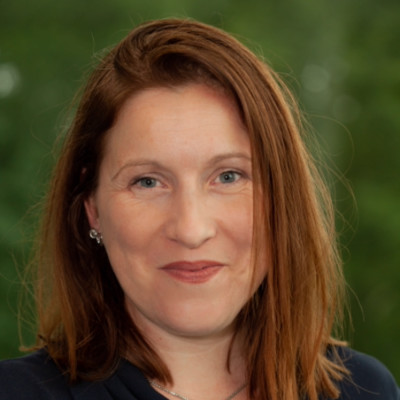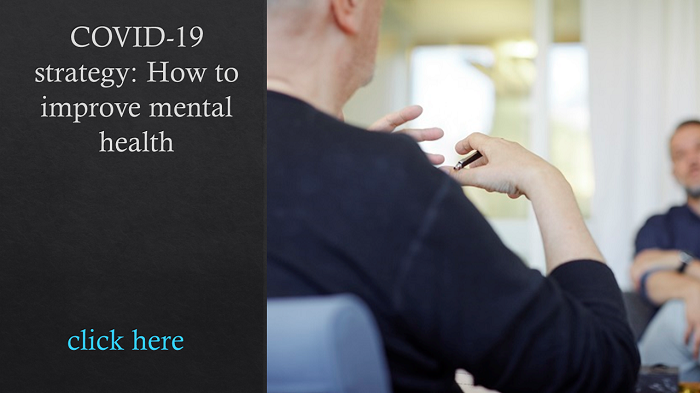Lisa Dodman’s HR career spans more than 25 years. During that time, she’s mostly worked in the software industry and, accordingly, grew accustomed to environments in which women were far outnumbered by men. That provided significant motivation as she advanced her career to the C-suite, Dodman says.

Lisa Dodman
“I think having been my whole career in software and software being very heavily male-dominated, I’ve always felt there’s something to prove and very firmly worked to own my seat at the table,” she says.
She currently sits at that table as chief people success officer of Unit4, an enterprise software company that offers solutions in finance management, accounting, ERP, talent management and student management. Based in the U.K., Dodman has been with Unit4 since 2015. She previously held HR leadership roles at Infor, Siemens PLM, Business Agility and Aeroflex.
HRE recently touched base with Dodman to see how the global company is responding to the pandemic and what the challenges of the last year have taught her about the HR role.
HRE: How have your HR priorities transformed over the last year?
Dodman: We’ve always been focused on the people experience—how do we create an extraordinary environment for extraordinary people? A year ago, that’s the path we were on. We were tying together the journey of people success and workspace to drive this picture. A year on, obviously COVID has taught us a lot. For every organization, wellbeing has become a major, major part of the evolution of their people journey, ensuring the safety of our people—not just physical safety but mental health and wellbeing has become a big thing for lots of companies now.
HRE: What has Unit4 done to help employees tackle the recent mental health challenges?
Dodman: Quite a lot. Firstly, we wrapped a waterfall of protection around the business, looking at how can we control costs and spending to protect as many jobs? The second thing was, what do we do to really focus on the wellbeing of our people? So, we launched Fit4U, a health, mind and wellbeing program. We had fitness activities throughout the day, we had yoga activities running through the day, we had Kids4U activities for children while they were home. We launched a step challenge app so our employees could get out and exercise within their teams and we created a competition around it. We focused on our employee assistance program to really give some support when it might be needed. We launched Thrive, which is a mental health and wellbeing app. We sent resilience gifts around the world to all of our employees. We launched Inspiration4U, a podcast series from our people about our people. And we then turned Fit4U into a program for customers.
HRE: How did Unit4 manage the shift to remote work? What worked well and what didn’t?
Dodman: Being a software company, a lot of our workforce are remote anyway. I think that helped us. Our journey of change is about freedom of choice and trust. We had already launched a work/life balance policy before lockdown hit where we removed the cap on vacation everywhere in the world; take as much leave as you need. Remote working has been a challenge in some countries at least initially because, while some people had outside spaces they could access, others didn’t. Some were trying to be employee, parent and teacher. We had to make sure people had desks and chairs readily available; in some countries, that was a challenge. But it’s helping us now to look at how do we pave the way for a better normal, combining collaborative and innovation spaces in an office environment with encouraging people to utilize remote working—working in coffee shops, museums—and that blended approach to how you work and how it works for you moving forward.
HRE: I saw that the organization launched a Learning Festival this year. Can you tell me what prompted that and what were some of the takeaways for you?
Dodman: We have an employee engagement tool. We push out surveys weekly; it’s a regular pulsing activity [that] goes through to their phones and we’re tracking our employee engagement. One of the things that came up was the focus on personal growth. Our Learning Festival was a three-week event of various learning opportunities, both personally and professionally. We had over 2,700 registrations for a series of events happening over that three-week period to help people grow and expand their mind and their experiences. That Learning Festival will be running again in the second half of the year, and then we will also be running it for our customers.
HRE: Is there anything the pandemic has changed about the employer-employee relationship that you think is for the positive and will last?
Dodman: I think showing vulnerability has been a big thing. All across the world, people have been experiencing the pandemic in many different ways. During that time, there have also been other challenges in a number of countries as well, which have added to the challenges employees have faced. One of the things remote working (and video) gives is that sense of really bringing home the personal challenges people might have into the workplace. So, showing your vulnerability, being proud of that vulnerability and not compromising any aspect of your life is really, really important. Seeing people with their children on their screens, giving people the confidence that if they can’t make a meeting because they’ve got homeschooling to do or they have to shift their hours to find a happier way of working—that has become a really pivotal part of our journey of change: Vulnerability, resilience and a huge bucketload of empathy.
HRE: What are one or two of the ways the HR role itself has changed since you started in the field?
 Dodman: I’ve been in HR for 25 years, and a lot has changed over that time. I think firstly, HR has become much more commercial. Really understanding the business drivers is a real way that you can have impact as an HR professional. I think the needs of the employee base have changed. We have people that work for us who’ve been here 30, 40 years through to graduates, and the graduates of today have very different needs around their employment, around how they scale, how they grow quickly. They have less patience, I would say, around how they progress their career quickly. So, you have a very dynamic workforce that covers all ends of the spectrum in terms of their needs and what they’re looking for in their career. And, there’s no job for life anymore. I don’t mean that in a negative sense. There are so many more opportunities and ways for you to embrace your career and drive your career in the direction that suits you that the company you work for is kind of adding to that journey and is a cog in the wheel as opposed to completely defining the place you start and the place you end. I think that is a pivotal change in how people see their careers but also HR adds value on that journey of change.
Dodman: I’ve been in HR for 25 years, and a lot has changed over that time. I think firstly, HR has become much more commercial. Really understanding the business drivers is a real way that you can have impact as an HR professional. I think the needs of the employee base have changed. We have people that work for us who’ve been here 30, 40 years through to graduates, and the graduates of today have very different needs around their employment, around how they scale, how they grow quickly. They have less patience, I would say, around how they progress their career quickly. So, you have a very dynamic workforce that covers all ends of the spectrum in terms of their needs and what they’re looking for in their career. And, there’s no job for life anymore. I don’t mean that in a negative sense. There are so many more opportunities and ways for you to embrace your career and drive your career in the direction that suits you that the company you work for is kind of adding to that journey and is a cog in the wheel as opposed to completely defining the place you start and the place you end. I think that is a pivotal change in how people see their careers but also HR adds value on that journey of change.
Click HERE to read more Insights from a CHRO.
HRE: If you hadn’t gone into HR, where do you think your career would have taken you?
Dodman: It’s funny, when I first started out in my career, I didn’t actually think I’d end up in HR. I thought I’d end up definitely in a customer service environment because engaging with customers is certainly a part of my role I really enjoy. But I didn’t expect to be in HR. Would it be very different? It would have been very service-oriented, definitely. But I am absolutely glad I made the decisions I did in terms of my career.
HRE: Could you share one or two things your co-workers might not know about you?
Dodman: I’m a mom; I have two teenage daughters. One is 17 and the other is 12. I really enjoy coaching others to get the best from their careers, so I do coaching on leadership. But I guess the big thing for me is I’m always learning. There’s always got to be something I can learn from everything I do, and I always have a plan. I know every step I’ve taken in my career has been strategically thought out. This is what I wanted to do.